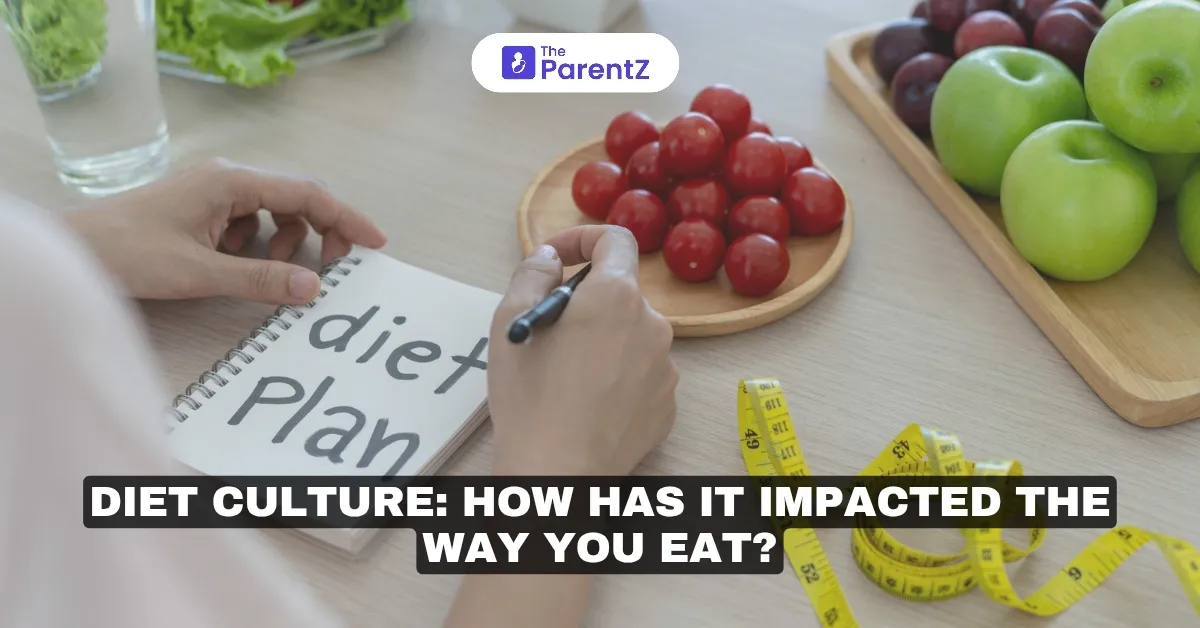If you ever found yourself second-guessing a slice of cake or measuring everything you eat with precision, perhaps you’re not the only one. There are millions of people who are in the race of following diet culture. This billion-dollar industry has secretly crept into the kitchens, conversations, and also your grocery carts. It’s nothing less than three words combined—guilt, praise, and endless rules.
The truth is—diet culture is all around—from influencers promoting detox teas to the latest clean eating trend. In fact, according to a survey, almost 65 percent of adults are influenced by diet culture in some form, whether it’s skipping meals to save some calories or labeling foods as good or bad. The diet culture has, in short, significantly affected the way you eat and how you feel about eating.
Has diet culture really changed your relationship with food? Read below this article to find out more.
Sneaking Diet Culture Into Everyday Eating
Another unsurprising fact is that diet culture has actually taught people to fear food. Phrases such as cheat days, guilt-free, and clean eating have created the concept that eating is something you need to justify or control. But is it really necessary? The answer is no. Despite this, almost 52 percent of people, as per a study, accepted they choose foods based on their perceived health benefits, even if they don’t enjoy them.
What’s more? It's not just about what you eat but how you eat. Possibly, you must have noticed many people around you eat salads with a side of shame or skip carbs completely just because your fitness trainer said so. Thus, it can be said that diet culture has set a fear-based mentality.
The Emotional Ties of Dieting
The fact is—food should bring joy, not anxiety. Yet, diet culture often ties your self-worth to a number on a weight scale or the calories on your plate. Did you know in the U.S. every 1 of 3 adults admitted feeling guilt after eating something they consider unhealthy? And what’s worse is the way these emotions seep in. Even kids as young as 8 years old also felt the pressure to eat healthy and stay skinny. This clearly proves how the diet culture has impacted mental health and self-image.
Healthy Eating Trends: The Paradox
You must have heard of trends such as keto or intermittent fasting. Even though these trends have good intentions, unknowingly they turn into merely some strict rules. For example, the keto diet was originally designed for medical purposes. However, it has now become a mainstream trend, with people cutting out entire food groups without medical supervision.
According to the Academy of Nutrition and Dietetics, nearly 20 percent of people who follow restrictive diets have some sort of nutrient deficiencies. So while you think you're eating healthy, you’re actually missing out on some essential nutrients and minerals.
Takeaway
While the diet culture trend was initially for good intentions, it is lately focusing on restrictions, saving calories rather than focusing your mindset to nourish your body. It's your reminder to break free from this dieting culture and take back the control in your own hands. It's time to switch to intuitive eating, which encourages listening to your body’s hunger and fullness. After all, your self-worth isn't judged by the waistline you have.








Be the first one to comment on this story.